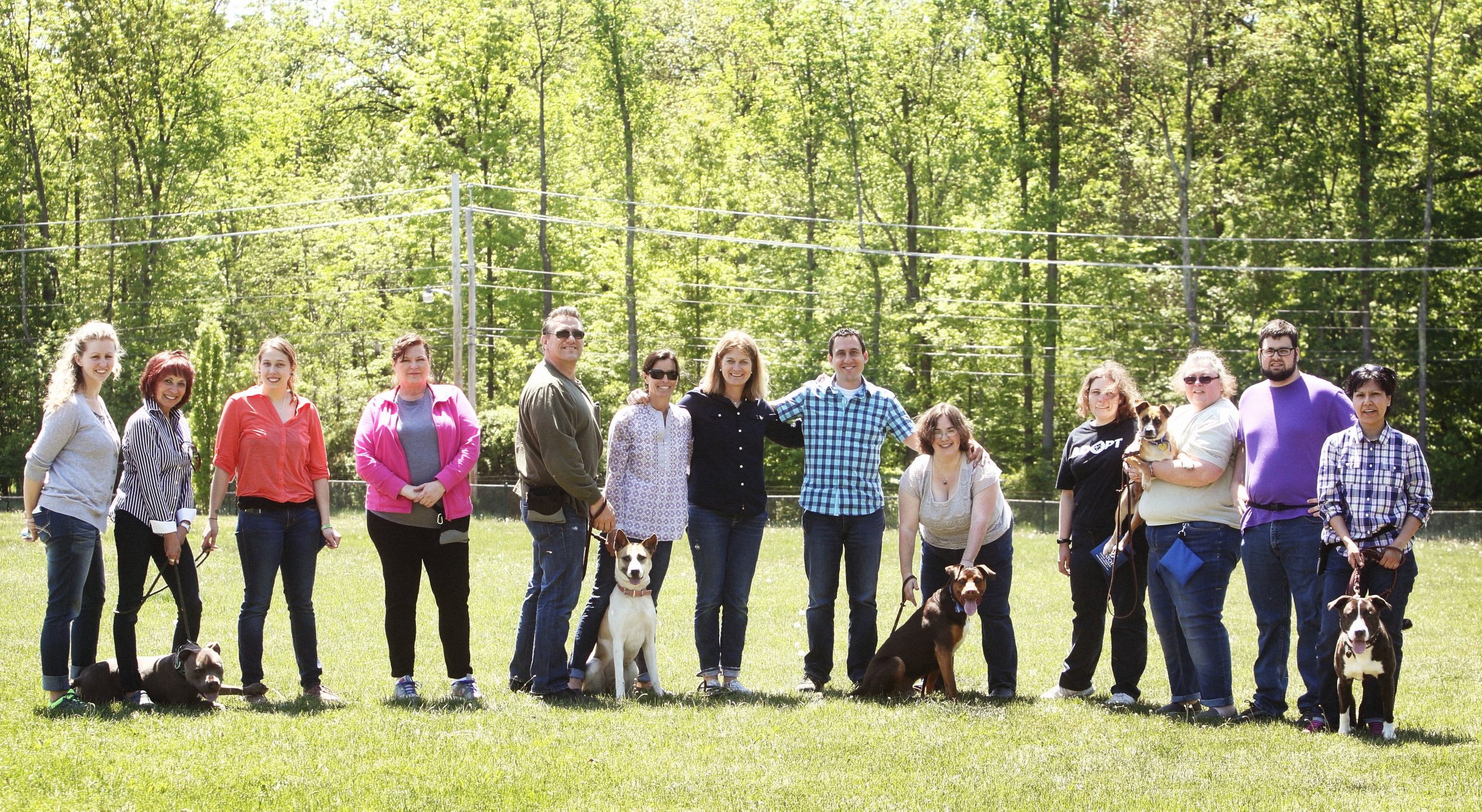
CATCH DOG TRAINING AND BEHAVIOR WORKSHOPS
Check out our 2024 & 2025 classes!
Classes are held at St. Hubert’s Madison location
575 Woodland Avenue, Madison, NJ
CATCH Academy partners with St. Hubert's to offer amazing dog training and behavior workshops on our beautiful campus. Students work hands-on with the shelter dogs as we immerse ourselves in a fascinating and comprehensive week of skill-building. If you’re looking for an in-depth learning experience alongside a world-class team of trainers, then these workshops are for you. Upon completion of your program, you will receive a certificate highlighting your studies and accomplishments.
Workshops Offered:
Body Language, Behavior, and Problem-Solving Skills
Professional Dog Training Skills: Fun, Fast, and Fun Techniques
Level II Workshop: A Week of Behavior Problem Solving
Tuition:
Contact CATCH Academy for current tuition options and available discounts.
877-752-2824
info@catchdogtrainers.com
Level II Workshop: A Week of Behavior Problem Solving
Sept 29 – Oct 3, 2025 - NOW ENROLLING
This workshop is ideal for dog lovers and industry pros who want a deep dive into behavior cases, both with the dogs in front of you and through presentations of real case studies from accomplished professionals. Get hands-on experience taking the topics taught in our other two workshops (training & behavior skills) and applying them at a more advanced level.
Prerequisites: This is a level II workshop, so students must have prior basic training experience or have graduated from one of the following two CATCH workshops: Professional Training Skills or Body Language, Behavior, & Problem Solving. If you have completed one of the above, but not both, we will ask you about your studies and experience in the topics of the other workshop.
Highlights include:
Get Assigned Behavior Cases – dogs with challenging issues that can be improved through training over the course of the week: Devise and document your management plan or behavior modification plan
Assess and build various motivators/rewards: Human-dog play; teach a dog to tug with release cue; teach a dog to fetch (full retrieve sequence).
Taking a professional and systematic approach to behavior problem solving. How to look at all factors that could be considered causes or triggers, how to apply management, how to apply behavior modification.
Presentations of our professional trainers’ actual case studies so you can learn new ideas and gain deeper understanding of how to apply them in real situations.
Understanding when and how you will want to use associative learning and behavior-consequence learning as part of your plan, all using force-free, reward-based methodology.
Advanced Training: Get assigned a core set of behaviors to train based on the needs of the dog; train to a specific standard including generalization for multiple environments and situations; document your baseline and progressive steps as you and the dog advance; demonstrate proof of generalization
Creating handouts for help with common problems: Info sheet; worksheet/checklist for client
Professional Dog Training Skills: Fast, Fun, Effective Techniques
APRIL 14 - 18, 2025 - NOW ENROLLING
This workshop is ideal for dog lovers and industry pros alike who want hands-on study in the complete process of training any behavior from getting the dog to learn the first moves to fading lures and generalizing performance to all situations, including distracting environments.
Highlights include:
Techniques for building any behavior from scratch: basic to advanced obedience, tricks and more. Luring, prompting, shaping, capturing, and targeting will all be covered.
Creating the steps of your training plan and thinking fast to modify them during training sessions. You will learn how to make good decisions that keep the dog focused and progressing quickly.
Reward selection and diversification, knowing the priority motivator in any given situation and how to deal with distractions
How to fade the lure; When to add the cue; When and how to change schedules of reinforcement
Markers, timing; the difference between praise and a marker and when to use each one
Mechanical skills: reward delivery, reward placement, leash handling and body positioning
Verbal cues (naming behaviors) and physical cues (hand signals); Teaching a dog to discriminate and putting a behavior on stimulus control
Advancing behaviors to higher levels of difficulty: the right way to add parameters like distance, duration and distraction
Keeping behaviors strong for lasting results and generalizing performance to many different situations and environments
Body Language, Behavior, and Problem Solving Skills
June 2 - 6, 2025 - NOW ENROLLING
This workshop is ideal for dog lovers and industry pros who want to experience hands-on study of dog behavior from learning to “speak dog” to planning and practicing behavior solutions with the shelter dogs!
Highlights include:
Observing dog behavior with a keen eye for details and then being able to: interpret what you see, analyze behavior, and make effective predictions. Facial expressions, body movement, intentions and emotions will all be covered.
Handling dogs on and off leash (play groups) while making fast decisions based on the behaviors you are seeing. We will study dog-to-dog behavior from greetings to off-leash interactions. We will run play groups where you learn how to tell the difference between play and conflict and become a better handler, making good decisions for safety and progressive socialization.
Understanding how dogs interpret human body language (yours), and learning how to move like a professional handler with both confident and fearful dogs. This makes a huge difference in both safety and effective leadership with dogs and clients alike.
Taking a professional and systematic approach to behavior problem solving. How to look at all factors that could be considered causes or triggers, how to apply management, how to apply behavior modification.
Writing behavior problem solving plans for actual cases in the shelter. Hands-on application of your plan with follow-through on management and behavior modification techniques.
Understanding when and how you will want to use associative learning and behavior-consequence learning as part of your plan, all using force-free, reward based methodology.


